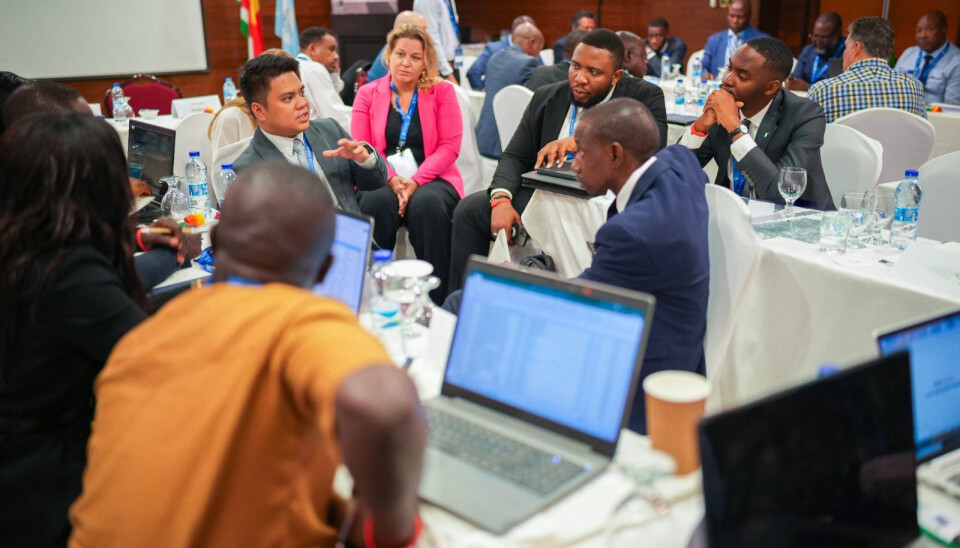Copyright : Re-publication of this article is authorised only in the following circumstances; the writer and Africa Legal are both recognised as the author and the website address www.africa-legal.com and original article link are back linked. Re-publication without both must be preauthorised by contacting editor@africa-legal.com
Greater collaboration needed to combat rising cybercrime that threatens Africa’s economic and social development, says new Interpol report

Following INTERPOL’s Africa Cyberthreat Assessment Report 2025 which showed 90 per cent of African nations needed ‘significant’ improvement in law enforcement or prosecution capacity, Operation Serengeti 2.0 has been launched.
In a bold step for Africa’s digital security, Operation Serengeti 2.0 began in the Seychelles on Wednesday, bringing together African nations, INTERPOL, and global partners to fight cybercrime through stronger regional cooperation, strategic planning, capacity building, and intelligence sharing.
The first Operation Serengeti, conducted in September and October 2024, targeted criminals behind ransomware, business email compromise (BEC), digital extortion and online scams, and saw authorities across 19 African nations arresting 1,006 suspects and dismantling 134,089 malicious infrastructures and networks thanks to a joint operation by INTERPOL and AFRIPOL against cybercrime.
Operation Serengeti 2.0 follows closely on the heels of the release earlier this week of INTERPOL’s Africa Cyberthreat Assessment Report 2025.
The African continent is entering an era of rapid digital transformation, bringing unprecedented opportunities for the economic, social, and institutional development of its member states, says Jalel Chelba, Acting Executive Director of AFRIPOL, in a foreword to the new INTERPOL report.
“This momentum reflects a collective commitment to accelerating digital inclusion, improving public services, and fostering local innovation,” says Chelba, before noting such progress also brings growing, sophisticated threats in cyberspace, which endanger the security of states, critical infrastructure, businesses, and citizens.
Since 2019, cyber incidents across Africa have resulted in estimated financial losses of more than $3 billion, noted this new fourth edition of INTERPOL’s report, with the finance, healthcare, energy, and government sectors among the hardest hit.
The report’s findings demonstrate that alongside the many positives the widespread adoption of mobile banking, e-commerce, and cloud computing can bring, they also open the door wider for cybercrime, and many African nations still lack adequate cybersecurity measures, leaving businesses and individuals vulnerable to attack.
Gathering data from 53 African nations who are members of INTERPOL, the report found a sharp rise in cybercrime overall across the African continent; two thirds of the countries surveyed now reporting that cyber-related crimes accounted for a medium (10-30%) to high (30%+) share of all reported crimes.
While cybercrime was relatively low in North Africa (10% or less of all reported crimes across the board), in West Africa and East Africa cybercrime accounts for more than 30% of all reported crimes. Online scams, often through phishing, were the most frequently reported cybercrimes, while ransomware, business email compromise (BEC), and digital sextortion were also widespread.
“This fourth edition of the INTERPOL African Cyberthreat Assessment provides a vital snapshot of the current situation, informed by operational intelligence, extensive law enforcement engagement and strategic private-sector collaboration,” says Neal Jetton, INTERPOL Cybercrime Director. “It paints a clear picture of a threat landscape in flux, with emerging dangers like AI-driven fraud that demand urgent attention. No single agency or country can face these challenges alone.”
Several African nations, including Ethiopia, Zimbabwe, Angola, Uganda, Nigeria, Kenya, Ghana, and Mozambique, were among the most frequently targeted globally in 2024, according to malware detection data from the ITU Global Cyberthreat Index.
“Cybersecurity is not merely a technical issue; it has become a fundamental pillar of stability, peace, and sustainable development in Africa,” says Chelba. “It directly concerns the digital sovereignty of states, the resilience of our institutions, citizen trust and the proper functioning of our economies.”
With over 500 million Internet users in Africa, many countries still lack adequate cybersecurity measures leaving businesses and individuals vulnerable to attacks, says the report. Many African nations face challenges such as legal frameworks that are still taking shape, limited cybersecurity investment, and digital literacy gaps, further exacerbating these risks, and 90 per cent need ‘significant improvement’ in law enforcement or prosecution capacity to address the growing cybercrime threat.
The INTERPOL report also noted positive steps some African nations have already made to strengthen cyber resilience, including advancing their legal frameworks, harmonising cybersecurity laws with international standards, and investing in specialised cybercrime response units and digital forensics.
To further improve Africa’s cybercrime response capabilities, the report made six recommendations:
Strengthening National Capabilities.
Enhancing Legal and Policy Frameworks.
Improving Regional and International Cooperation.
Expanding Prevention and Public Awareness.
Deepening Public-Private Partnerships.
Leveraging Emerging Technologies for Cybercrime Prevention.
“Sustained collaboration will be essential to closing enforcement gaps and tackling organized cybercrime groups operating beyond national borders,” says the report, with INTERPOL and AFRIPOL committed to facilitating structured cooperation across Africa and with global partners.
You can download and read the full INTERPOL Africa Cyberthreat Assessment Report 2025 here.
